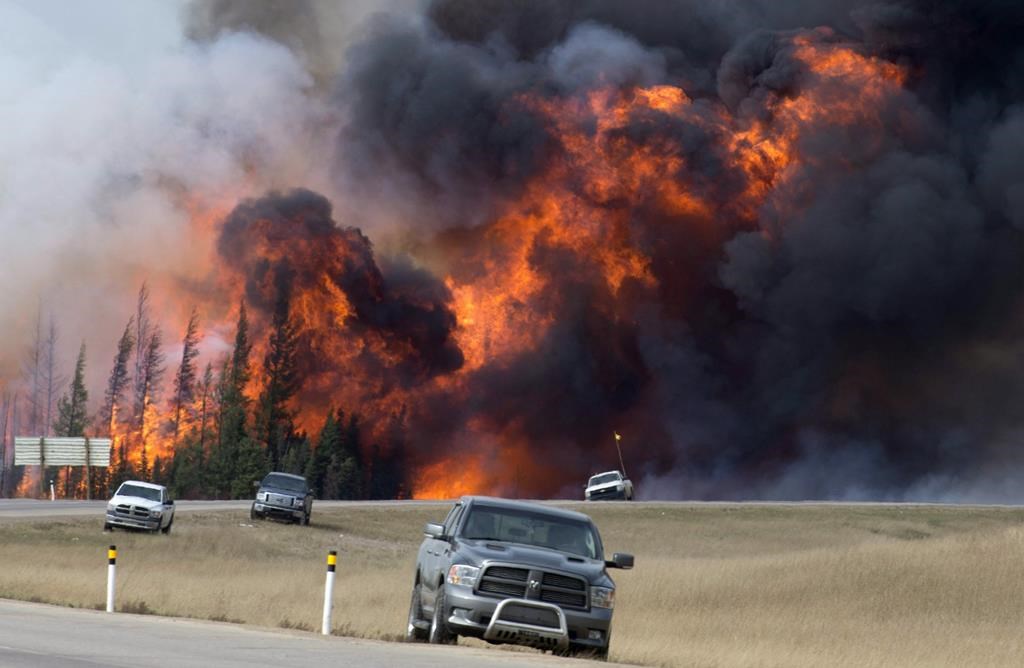The provincial government is staffing fire crews two weeks earlier than usual in preparation for wildfire season.

Fire season officially begins on March 1, but crews and support staff will be ready on April 15. As the fire season progresses, more crews will be brought on as required.
There are currently 60 fires burning in the province and usually there are about 10 to 12, according to the minister of Forestry and Parks.

“We have a low snowload this year and if we don’t have any changes in the weather between now and spring, then we know we are going to be starting early,” Alberta Minister of Forestry and Parks Todd Loewen said.

To improve the fire fight, Loewen said the province is working on having community fireguards patrol remote communities, and plans on increasing the timeframe they can fight fires.

Get daily National news
“With the new technology we have with night vision with helicopters and drone technology with thermal activity, we can do a lot more firefighting at night which is when the fires are more subdued and easier to handle,” said Loewen.

Back in January, Alberta Wildfire community relations coordinator Melissa Story detailed what the wildfire season was like last year. Story said the number of wildfires was not unusual but the hectares burned was 10 times the province’s five-year average.
“Our 2023 wildfire season was the most hectares burned on record,” Story said, adding over 2.2 million hectares burned. “The closest second that we have to that it was 1.3 million hectares being burned in 1981.”
“This last year we had 50 communities and 38,000 people evacuated, so we are making sure we are working and communicating with public safety and emergency services to make sure as things progress that we have a clear delineation of how things work when we get into these situations,” said Loewen.
While crews do plan to start in April, the province said May is the month Alberta sees the most fires. On average for the last five years, May saw 500 fires. To add context, March’s averages is about 12.
Finding firefighters has not been an issue for the province. The minister said they had a record number of people applying to become wildland firefighters this year.
“This year we have had an uptick of course in the number of people who are applying and I think some of that has to do with our efforts to encourage more people to join in, but also because people, I think, are a little more aware of the situation because of last year and the high number of fires that we had,” said Loewen.
Last year human activity accounted for 61 per cent of the wildfires.










Comments